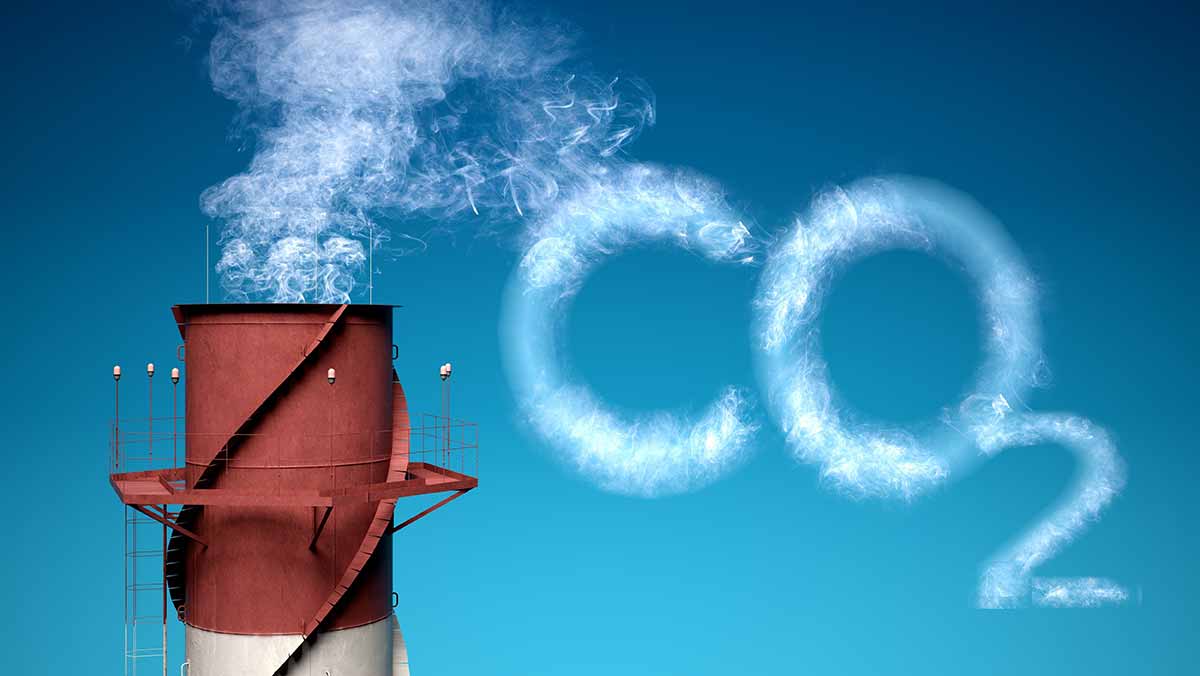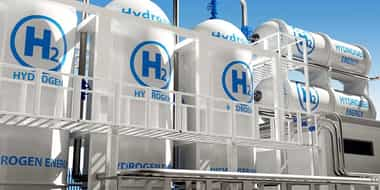
Oct 26, 2022
Blog Energy & Sustainability Why is there a CO2 shortage and how is this affecting the European and US market?
We associate carbon dioxide with global warming and climate change – factors that threaten our very existence on Earth. It’s easy to assume that a carbon dioxide shortage would be a good thing, but in recent years the depletion of this gas has caused an onslaught of issues for the industries that rely on it for key elements of their supply chain. There simply isn't enough of it to satisfy the myriad of uses of this atmospheric gas. With global shortages on this rise, BCC Research has released a report looking at the facts of the CO2 shortage and how it stands to affect the global markets. If steps are taken to repair the kink in the supply chain, knock-on effects can be minimized.
According to the International Energy Agency (IEA) , each year approximately 230 million tons of carbon dioxide are consumed worldwide. Industries utilizing the largest share of CO2 consumption are the food and beverage, manufacturing, construction, enhanced oil and gas recovery, pharmaceutical, and medical industries.
CO2 is heavier than air and thermodynamically stable meaning it is one of the most useful industrial gases we can utilize. When compressed into a cylinder it makes a fire extinguisher, when added to beverages it carbonates them, and when frozen, CO2 becomes dry ice, which keeps medical materials chilled during transport.
The food and beverage industry has been the most affected by the carbon dioxide shortage. From the carbonation of beer and soda to food packaging applications, CO2 is an essential component of the supply chain for this industry. So much so that shortages of gas have been categorized as a potential food and drink crisis.
Carbon dioxide is a by-product of ammonia-based fertilizers. Ammonia is made using the Haber process, combining nitrogen and hydrogen under pressure to form NH3. Of the ingredients needed, N2 is very abundant (it’s 78% of the atmosphere we breathe), but hydrogen gas is not, so it must be synthesized. This is most commonly achieved via methane steam re-forming, which involves taking natural gas and heating it in the presence of water to about 1832˚F. The end products are hydrogen gas and carbon dioxide. Hydrogen gas goes on to be used in the production of ammonia, while the CO2 is either captured and sold as a commodity or vented into the atmosphere as waste.
Looking at the CO2 shortage in the UK and US specifically, rising natural gas prices were a key catalyst in the exhaustion of carbon dioxide. More than 60% of the CO2 needed in the UK's food and beverage industry relies on two fertilizer plants. These are based in the north of England (Cheshire and Teesside) and are owned by C.F. Industries , which temporarily halted production on account of soaring wholesale gas prices. This shortage led to an acute supply concern for supermarkets and impacted the availability of bakery, poultry products, and pork.
The global rise in the price of natural gas in 2021 resulted from a host of factors, ranging from geopolitics to economic recovery after the pandemic. Across the globe, countries struggled, including the US, the largest producer of natural gas. On March 31, 2021, prices soared from USD 1.7 per million British thermal units (MBtu) to USD 6.3 million per MBtu in October. The EU was hit the hardest, as it highly depends on energy imports. The cost crisis continued into the second half of 2022 when the cost of gas hit another spike as demand outpaced supply during the summer season.
BCC determines that this shortage doesn’t have to critically impact the European or US industries that rely heavily on carbon dioxide to function. A dedicated approach is essentially required to overcome the shortage of CO2 by increasing inventories, infrastructure development, technological advances, and forging relationships with substitute suppliers. After analyzing the factors that played a key role in the overall demand and supply in the CO2 industry, BCC Research proposes some short- and long-term solutions:
1. Carbon capture system
Carbon capture system (CCS) refers to a precautionary process designed to limit the volume of carbon emissions in the atmosphere and to play a key role in tackling global warming. These specialized systems are installed near the source of CO2 emissions.
Carbon capture systems possess a strong capability to address the worldwide CO2 shortage. Companies are looking to create innovative technologies that can help them reduce their carbon footprint and re-utilize waste gas in other industries. Deployment of these CCS systems can reduce the impact of overall carbon emissions and CO2 shortages. The only drawback of these systems is that because they are cost-intensive, they are not a feasible solution for small and medium-sized companies.
2. Direct air capture (DAC) technology
Direct air capture (DAC) technology is designed to capture carbon dioxide directly from the atmosphere. After collection, the gas can be permanently stored for further industrial use. One such plant is located in Iceland, which captures over 4,000 tons of CO2 annually and stores it inside the volcanic rock basalt. The stored gas can either be used for industrial purposes or can be left to mineralize for over 20 years, converting it into stone via a natural reaction, along with the rock. The volume of CO2 from DAC is growing promisingly, but it needs to grow more rapidly. In the Net Zero Emissions by 2050 scenario, by 2030, DAC will be scaled up to capture nearly 60 mt CO2 on an annual basis. To attain such capacity, new technology will be required, along with reduced capturing costs.
3. Nitrogen as a substitute for CO2 in foods and beverages
Amid the prolonged CO2 shortage, nitrogen is gradually gaining attractiveness among meat producers worldwide. Nitrogen is an excellent alternative to carbon dioxide. N2 is an inert, colorless, and tasteless gas, which makes it ideal for food applications. Upfront costs involved at the initial stages have always been a major barrier to the use of N2 as a substitute. But amid multiple CO2 outages companies are relying on it to secure a stable supply chain
Availability: nitrogen can be generated on-site either via generators or compressed air installation. The ability to produce the gas in-house also relieves the customer from the stress and anxiety associated with supply disruptions, since it will be available in the desired volume and composition.
Sustainability: carbon dioxide is derived from the combustion of fossil fuels, and the process leaves a huge carbon footprint on the planet. However, nitrogen comprises nearly 78% of the atmosphere and can be extracted with minimal effort and environmental impact. Switching to N2 from CO2 can help a company significantly reduce its carbon footprint.
Cost-effectiveness: nitrogen can easily be produced via a generator, whereas CO2 needs to be derived from another supplier. The cost of nitrogen extraction from the air is much less compared to purchasing packaged nitrogen gas from third parties.
BCC Research’s latest report on the ongoing CO2 shortage discusses the impact on end-user as well as delving into the production technology and leading producers of CO2 in the market. To download your complimentary report overview, click here. Alternatively, you can purchase the full report or become a BCC member and gain access to our environment library. From market sizing and forecasts to opportunity assessments and competitor analysis, being a member of BCC Research entitles you to unlimited report access from the collections of your choice.
Find out more below.

Katie Biddle joined BCC Research as a junior copywriter in 2022 and works within the marketing team. Prior to BCC, she recently graduated with a BA in Creative Writing and English Literature from Westminster University.

Electrical switches—devices that control the flow of electricity—are the backbon...

As the world accelerates toward net-zero emissions, hydrogen, and ammonia have e...

Hydrogen technology is widely used across industries like glass, fertilizer, met...

We are your trusted research partner, providing actionable insights and custom consulting across life sciences, advanced materials, and technology. Allow BCC Research to nurture your smartest business decisions today, tomorrow, and beyond.
Contact UsBCC Research provides objective, unbiased measurement and assessment of market opportunities with detailed market research reports. Our experienced industry analysts assess growth opportunities, market sizing, technologies, applications, supply chains and companies with the singular goal of helping you make informed business decisions, free of noise and hype.